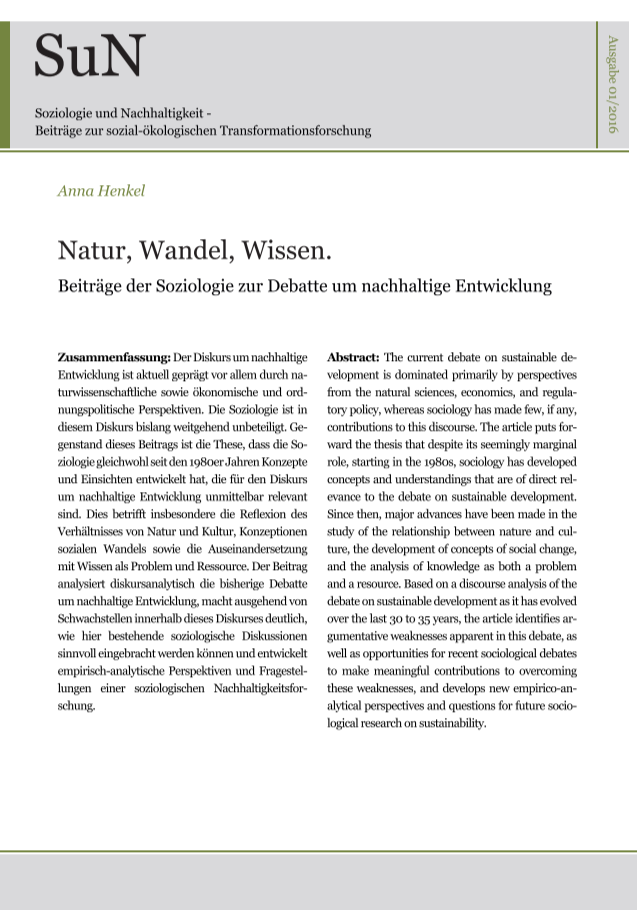Natur, Wandel, Wissen
Beiträge der Soziologie zur Debatte um nachhaltige Entwicklung
DOI:
https://doi.org/10.17879/sun-2016-1675Schlagworte:
Natur-Kultur-Debatte, Wissen, sozialer Wandel, Kritik, NachhaltigkeitAbstract
Der Diskurs um nachhaltige Entwicklung ist aktuell geprägt vor allem durch naturwissenschaftliche sowie ökonomische und ordnungspolitische Perspektiven. Die Soziologie ist in diesem Diskurs bislang weitgehend unbeteiligt. Gegenstand dieses Beitrags ist die These, dass die Soziologie gleichwohl seit den 1980er Jahren Konzepte und Einsichten entwickelt hat, die für den Diskurs um nachhaltige Entwicklung unmittelbar relevant sind. Dies betrifft insbesondere die Reflexion des Verhältnisses von Natur und Kultur, Konzeptionen sozialen Wandels sowie die Auseinandersetzung mit Wissen als Problem und Ressource. Der Beitrag analysiert diskursanalytisch die bisherige Debatte um nachhaltige Entwicklung, macht ausgehend von Schwachstellen innerhalb dieses Diskurses deutlich, wie hier bestehende soziologische Diskussionen sinnvoll eingebracht werden können und entwickelt empirisch-analytische Perspektiven und Fragestellungen einer soziologischen Nachhaltigkeitsforschung.
The current debate on sustainable development is dominated primarily by perspectives from the natural sciences, economics, and regulatory policy, whereas sociology has made few, if any, contributions to this discourse. The article puts forward the thesis that despite its seemingly marginal role, starting in the 1980s, sociology has developed concepts and understandings that are of direct relevance to the debate on sustainable development. Since then, major advances have been made in the study of the relationship between nature and culture, the development of concepts of social change, and the analysis of knowledge as both a problem and a resource. Based on a discourse analysis of the debate on sustainable development as it has evolved over the last 30 to 35 years, the article identifies argumentative weaknesses apparent in this debate, as well as opportunities for recent sociological debates to make meaningful contributions to overcoming these weaknesses, and develops new empirico-analytical perspectives and questions for future sociological research on sustainability.
(editorial reviewed)





